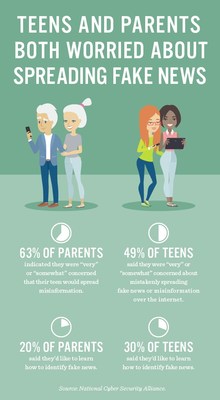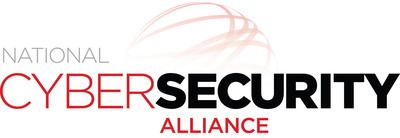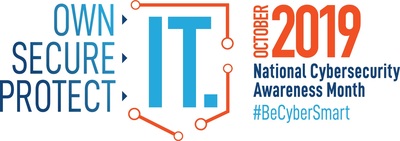|
Second Annual National Cyber Security Alliance Survey Reveals Complex Digital Lives of American Teens and Parents, Highlights Gender Divide
WASHINGTON, Oct. 19, 2017 /PRNewswire/ -- The National Cyber Security Alliance (NCSA) today released the findings of Keeping Up with Generation App: NCSA Parent/Teen Online Safety Survey, providing an insightful look into the complex digital lives of American teens and their parents. The U.S.-based survey, which interviewed 813 online teens between the ages of 13 and 17 and a separate sample of 809 online parents of 13-17 year olds, found interesting shifts in online behaviors and concerns. New to the survey was the issue of fake news, about which both teens and parents expressed worry. Almost 50 percent of teens said they were "very" or "somewhat" concerned about mistakenly spreading fake news or misinformation over the internet. Parents were even more concerned about the issue, with over 60 percent of them indicating they were "very" or "somewhat" concerned that their teen would spread misinformation ? a key indicator of how prevalent the issue of fake news has become over the last year. Twenty percent of parents also said they'd like to learn how to identify fake news, and 30 percent of teens said they'd like to know more about this kind of information.

"It is encouraging to see that both teens and parents place a high priority on conveying accurate information across the internet," said Michael Kaiser, NCSA's executive director. "They understand that they share a responsibility for making the internet safer."
Co-sponsored by Microsoft, the NCSA study was conducted to better understand teens and parents' attitudes, concerns and knowledge base about online safety and privacy and how they view their own responsibility to keep themselves safe while on the internet.
The study also assessed screen time and family rules on technology use, disclosing some surprising responses from both teens and parents, such as:
- Teens and Parents Both Think They Spend Too Much Time Online: Smartphones are now ubiquitous in teens' lives (82% of teens own a smartphone, 67% have a laptop and 48% have a tablet) but constant mobile connectivity comes with a cost. Close to a third (28%) say they spend "too much time" online and almost half (46%) say they spend "a little more time" online than they would like. Parents were also concerned about their own screen time, with 22 percent saying they spend "too much time" online and almost 60 percent saying they spend "a little more time" online than they would like.
- Tensions Exist Over Tech Use: Screen time is the most frequent point of technology-related tension between teens and their parents, according to both parties. Twenty-two percent of teens say they frequently have disagreements with their parents about screen time and 26 percent of parents say they argue with their children about it. Boys are more likely than girls to report frequent disagreements over screen time (25% vs. 18%).
- Who is the Family Chief Security Officer?: Parents and teens both think they are most knowledgeable about cybersecurity and privacy in their household. Thirty-four percent of teens indicate that they are the most knowledgeable – followed by 24 percent who think dad is, and 18 percent who think mom is. Boys were much more likely to identify themselves as the household authority on cybersecurity and privacy than girls (42% vs. 27%); and girls were more likely to point to mom as the household cybersecurity authority than boys (25% vs. 11%). When parents were asked who is the most knowledgeable, 66 percent said they are, 21 percent say their partner is, and six percent say their children are.
- Teens Believe Parents Should Also Follow Some Tech Rules: Most teens are expected to follow at least some rules about their technology use. The most common rules teens report are restrictions on being connected during dinner (42%), limits on sharing passwords with friends (33%) and requirements that they report any online incidents that make them feel scared or uncomfortable (30%). When teens were asked what kinds of rules they would also want their parents to follow, they felt there should be limits on the kind of social media content parents can post (38%). Teens also indicate that think their parents should not be allowed to use their devices at dinner (53%) and should not share passwords with friends (49%).
- Teens Look to Peers after Negative Online Events: Fully 41 percent of online teens say that a friend of theirs has sought help from them because of something that happened online. Most of these situations involved harassment or bullying, but one in four online teens(25%) said their friends had been threatened online. Moreover, when providing peer support for the negative experiences their friends have online, teens find that other friends are the most valuable resource. Fully 57 percent said their other friends were the most helpful in these situations, while 42 percent said their parents were the most helpful resource.
- Parents are a Critical Resource for Online Safety and Security: Almost half (47%) of online teens say their parents are among their top three sources for learning how to stay safe online, compared with 40 percent who say their friends are top sources. Another one in three (32%) of online teens say the news media is a primary source for education about online safety and security.
- Boys and Girls Use the Internet Differently: Girls are much heavier users of social media than boys (70% vs. 49%) and more frequent online music listeners (70% vs. 51%). By contrast, boys prefer playing games, with 51 percent doing so frequently, compared with 35 percent of girls.
The survey also highlights a range of concerns teens and parents have about technology and being safe online, which range from fake news to online bullying and unauthorized access to their accounts:
- Security, Safety and Privacy Concerns: Similar to last year's survey, teens and parents are aligned on their top three concerns affecting online teens (ranked as something they are "very concerned" about), which are:
- Someone accessing a teen's account without permission (teens, 41% vs. parents, 41%)
- Someone sharing a teen's personal information about them online (teens, 39% vs. parents, 42%)
- Having a teen's photo or video shared that they wanted private (teens, 36% vs. parents, 34%)
- Bullying and Online Harassment: Twenty-three percent of teens report that they have been harassed or bullied for a sustained period of time on the internet, and 24 percent say they were pressured to participate in harassing or bullying someone else online. Additionally, 20 percent say they had been harassed because of their political views, a category new to this year's survey.
- Girls are more likely than boys to say that the mean or cruel messages were related to their appearance (41% vs. 29%) or their sexual orientation (24% vs. 14%), while boys were more likely than girls to report meanness and cruelty associated with their political beliefs (24% vs. 15%).
- Parents Not Fully Aware of Teens' Online Lives: The majority of online teens continue to engage in online activities that their parents don't know about; 57 percent say they have created an account that their parents are unaware of, such as for a social media site or an app they wanted to use.
"This year's study again highlights that teens and parents are finding ways to manage and navigate their online lives and are aware of some of the many complexities," said Kaiser. "We remain concerned about the extent of negative behaviors people experience online but are heartened to see that teens can turn to their peers and parents when a problem occurs and that both teens and parents want to learn more about using the internet safely and securely."
While teens and parents clearly diverge in a number of areas, they appear to have similar interests in learning about online safety issues. For both parents and teens, learning how to prevent identity theft is their top online concern and keeping devices secure and concerns about ransomware and malware also ranked high. Teens also ranked consistently as high or higher than parents in showing interest in topics focused on preventing security breaches, such as phishing (teens, 31% vs. parents, 27%), website security (29% vs. 24%) and creating better passwords (22% vs. 14%) ? indicating a strong desire to be more aware of how to implement the basics of cyber hygiene critical to staying safe online.
"NCSA encourages parents and teens to keep communicating and learning about the ways they can increase their safety and security online," said Kaiser. "And, while online safety has focused on prevention and this should always remain a goal, there is a tremendous opportunity to engage young people in being supporters of their peers when they experience problems. Helping them to help others will build their resistance and resilience as well."
This year's results also confirmed that teens are taking responsibility for their online safety. The survey found that while 62 percent of teens feel it is mostly their responsibility to keep themselves safe online, 10 percent feel it is mostly their parents' job and 23 percent say they and their parents share the responsibility equally. On the other hand, 44 percent of parents say they feel mostly responsible for keeping their children safe online.
Based on this study, NCSA recommends:
- Addressing the tension around screen time that seems to be causing conflicts in the home;
- Parents and teens working together to strategize how teens will help their friends if their friends seek help for issues online; and
- Establishing rules that apply to all members equally, including what's ok to share about each other online.
More Information
Methodology
As part of ongoing efforts to support consumer education and awareness about online safety for families, NCSA commissioned a national survey to gauge teens' and parents' online experiences and concerns—particularly with respect to the ongoing challenges connected to youth encountering negative and harmful content in digital spaces. Using the Zogby panel, NCSA surveyed a sample of 813 teens ages 13-17 and 809 parents of teens ages 13-17 during the period of September 14-17, 2017. These findings help to document changes over the past year and highlight new opportunities for online safety messaging and outreach.
About the National Cyber Security Alliance
The National Cyber Security Alliance (NCSA) is the nation's leading nonprofit, public-private partnership promoting cybersecurity and privacy education and awareness. NCSA works with a broad array of stakeholders in government, industry and civil society. NCSA's primary partners are the U.S. Department of Homeland Security (DHS) and NCSA's Board of Directors, which includes representatives from ADP; Aetna; AT&T Services Inc.; Bank of America; Barclays; CDK Global, LLC; Cisco; Comcast Corporation; ESET North America; Google; Facebook; LifeLock, Inc.; Logical Operations; NXP Semiconductors; RSA, the Security Division of EMC; Symantec Corporation; Intel Corporation; MasterCard; Microsoft Corporation; PayPal; Raytheon; PKWARE; Salesforce; SANS Security Awareness; TeleSign; Visa and Wells Fargo. NCSA's core efforts include National Cyber Security Awareness Month (October); Data Privacy Day (Jan. 28) and STOP. THINK. CONNECT.™, the global online safety awareness and education campaign co-founded by NCSA and the Anti Phishing Working Group, with federal government leadership from DHS. For more information on NCSA, please visit staysafeonline.org/about-us/overview/.


View original content with multimedia:http://www.prnewswire.com/news-releases/second-annual-national-cyber-security-alliance-survey-reveals-complex-digital-lives-of-american-teens-and-parents-highlights-gender-divide-300539683.html
SOURCE National Cyber Security Alliance

[ Back To TMCnet.com's Homepage ]
|




